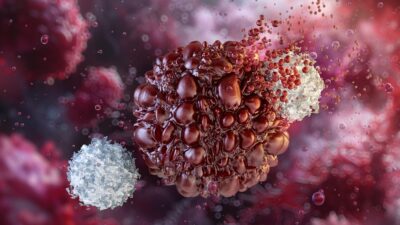NewLimit: A New Biotech Working on Epigenetic Aging
- This new venture has raised more than $100 million so far.

Two investors, including a co-founder of Coinbase, have announced a new biotech venture that aims to solve aging by studying its epigenetic aspects.
New kid on the block
Long gone are the times when longevity biotech companies were scarce and poorly funded. Today, barely a week goes by without a major launch announcement, and more often than not, the founding team includes tech investors and crypto gurus.
A few days ago, in a blog post on their newly minted website, a duo of investors announced the launch of their company, NewLimit. These are Brian Armstrong, the co-founder and CEO of Coinbase, a leading crypto exchange, and Blake Byers, who most recently was a General Partner at Google Ventures, where he led investments in tech and biotech companies. He also holds a PhD in bioengineering from Stanford. The third person behind NewLimit is Alex Marson, Director of the Gladstone-UCSF Institute of Genomic Immunology and Professor of Medicine at University of California – San Francisco.
Betting on epigenetic reprogramming
NewLimit intends to use machine learning algorithms to study age-related epigenetic changes and develop therapies based on this knowledge. Certain changes in the human epigenome are indeed strongly correlated with aging, which forms the basis of methylation clocks, today’s golden standard for measuring biological age. Germline cells can naturally rewind their epigenome to a young state, which is how brand-new organisms are born from adult ones. Scientists have also learned to trigger this reset in somatic cells, creating induced pluripotent stem cells (iPSCs).
This is called epigenetic reprogramming, and NewLimit will not be the first company to bet on it. Many ventures have recognized the potential of this technology, including the secretive Google-founded behemoth Calico and the recently announced Altos Labs co-founded by Jeff Bezos and Yuri Milner.
This means that NewLimit will be facing some serious competition from the start. What is their secret weapon? “The most unique thing about NewLimit”, the founders write, “will not be the idea or the capital we have access to. Instead, it will be the people we hire and the culture we create.” According to Armstrong and Byers, NewLimit will be to other players what SpaceX is to NASA and Blue Origin.
Ambitious and optimistic
The recent explosion of interest and investments in the longevity field has raised questions as to how sustainable this is. Even more than many other areas of medical research, geroscience is a marathon. We are only beginning to understand aging, and it takes a long time to prove the effectiveness of geroprotective interventions. Will the initial excitement eventually give way to despair, tanking the field?
It seems that the founders of NewLimit understand what lies ahead. They describe their goal as “incredibly ambitious” and one that “could take decades to achieve”. According to the website, one of the company’s values is “inherent optimism”, and NewLimit is going to need a lot of it.
Yet, NewLimit also plans to start generating revenue early on. The founders are unapologetic about building a for-profit company that “values products over papers”. It is unclear what kinds of products NewLimit intends to create, but the early ones might include consumer epigenetic tests, which already have a budding market.
The company has raised $105 million to date. Armstrong and Byers promise additional funding “upon reasonable progress” and do not expect money to be the limiting factor in the next few years.
They’re hiring
Their blog post also delves briefly into the ethical aspects of longevity, countering the two most popular arguments: that any addition to lifespan will inevitably be spent in age-related frailty and misery and that life-prolonging technologies will only benefit the rich. “Two years ago”, the founders write, “mRNA therapeutics packaged in liquid nano particles (LNPs) were a product only reserved for expensive gene therapies, but in 2021, over a billion people received an mRNA LNP to immunize them against COVID for less than $20 a dose.”
The fact that the Armstrong and Byers felt the need to explain themselves is telling: this would probably not happen if they were developing a cure for cancer or diabetes. Sadly, we still have to deal with various misconceptions about fighting aging and increasing longevity.
If you would like to join the effort, NewLimit is actively hiring “bright people who are earlier in their career and have not become too entrenched in traditional ways of thinking”. We encourage the intellectual rebels among us to pay attention.







